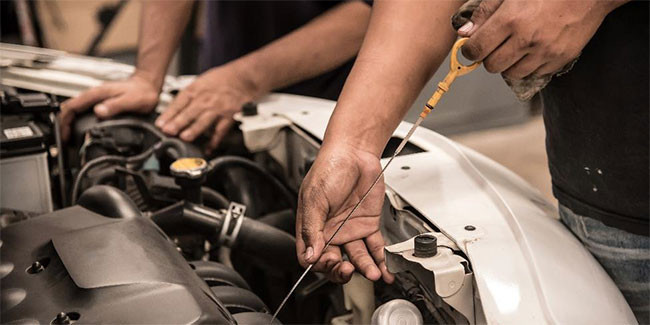Starting out as a new driver can be both exciting and overwhelming. While mastering the art of driving is essential, maintaining your vehicle in top condition is equally crucial for your safety and the longevity of your car. At GET DRIVERS ED, we understand that a solid foundation in vehicle care is an integral part of being a responsible driver. This guide will walk you through essential car maintenance tips every new driver should know.
1. Understand Your Vehicle’s Maintenance Schedule
One of the first things you should do as a new driver is familiarize yourself with your vehicle’s maintenance schedule. This schedule is typically found in your car’s owner’s manual and outlines when you need to perform various maintenance tasks.
Oil Changes: Regular oil changes are crucial for keeping your engine running smoothly. Typically, you should have your oil changed every 3,000 to 5,000 miles, depending on your vehicle and driving conditions.
Tire Rotations: Rotating your tires every 6,000 to 8,000 miles helps ensure even wear and extends their lifespan.
Brake Inspections: Check your brake pads and rotors regularly. Worn brakes can be dangerous and should be replaced promptly.
By following your vehicle’s maintenance schedule, you can avoid costly repairs and ensure that your car remains in optimal condition.
2. Check Fluid Levels Regularly
Fluids are the lifeblood of your vehicle, and maintaining the correct levels is crucial for its performance. Here’s a quick guide to essential fluids:
Engine Oil: Check your engine oil level at least once a month and top it off if needed.
Coolant: Ensure your coolant level is sufficient to prevent overheating. It’s usually checked when the engine is cool.
Brake Fluid: Low brake fluid can affect braking performance. Check it regularly and top up if necessary.
Transmission Fluid: This fluid helps with smooth shifting. Consult your vehicle’s manual for the recommended intervals to check and change it.
Regularly checking and topping up these fluids will help keep your vehicle running efficiently.
3. Inspect and Maintain Your Tires
Tires are your vehicle’s only contact with the road, so keeping them in good condition is crucial for safety. Here’s what to keep in mind:
Tire Pressure: Check your tire pressure monthly and adjust it according to your vehicle’s specifications. Properly inflated tires improve fuel efficiency and handling.
Tire Tread: Inspect your tire tread regularly. The tread helps grip the road and is essential for safe driving, especially in adverse weather conditions.
Alignment and Balancing: Have your tires aligned and balanced as needed to prevent uneven wear and improve vehicle handling.
Proper tire maintenance not only enhances safety but also improves fuel efficiency.
4. Replace Worn-Out Wipers and Lights
Visibility is key to safe driving, and worn-out wipers or lights can impair your ability to see and be seen.
Wiper Blades: Replace your wiper blades every six to twelve months, or sooner if they start to streak or make noise.
Headlights and Taillights: Regularly check that all your lights are functioning properly. Replace any burned-out bulbs promptly to ensure you’re visible to other drivers.
Keeping your wipers and lights in good condition will help you drive safely in all weather conditions.
5. Listen for Unusual Noises
Unusual noises can be an early warning sign of potential issues with your vehicle. Pay attention to any new or strange sounds such as:
Grinding or Squealing Brakes: This could indicate worn brake pads or other brake issues.
Engine Knocking or Pinging: This might suggest problems with your engine or fuel system.
Rattling or Clunking: This could be a sign of loose or damaged parts.
If you notice any unusual noises, have your vehicle inspected by a professional mechanic as soon as possible.
6. Keep Your Car Clean and Organized
While it might seem minor, keeping your car clean can actually help with maintenance.
Interior: Regularly clean the interior to prevent damage to upholstery and to keep your vehicle organized.
Exterior: Wash your car regularly to remove dirt, salt, and other contaminants that can damage the paint and metal.
A clean car not only looks better but can also help you spot potential issues more easily.
7. Know How to Handle Basic Repairs
As a new driver, it’s helpful to know how to handle some basic repairs and maintenance tasks:
Changing a Flat Tire: Familiarize yourself with how to change a flat tire and carry a spare tire and jack in your vehicle.
Jump-Starting a Battery: Learn how to jump-start a dead battery safely using jumper cables.
Checking Oil Levels: Know how to check and top off your engine oil.
These basic skills can be incredibly useful in emergencies and help you avoid being stranded on the road.
8. Enroll in a Comprehensive Drivers Ed Course
A comprehensive drivers ed course like GET DRIVERS ED can provide you with a thorough understanding of vehicle maintenance and safety. Our course covers essential driving skills, including vehicle care, to ensure you’re well-prepared for any situation on the road.
By enrolling in GET DRIVERS ED, you’ll gain valuable knowledge and confidence in maintaining your vehicle, which is a crucial part of being a responsible driver.
Conclusion
Proper car maintenance is vital for every new driver. By understanding your vehicle’s maintenance schedule, checking fluid levels, maintaining your tires, replacing worn-out wipers and lights, listening for unusual noises, keeping your car clean, knowing basic repairs, and enrolling in a comprehensive drivers ed program, you can ensure your vehicle remains in top condition and drive safely. At GET DRIVERS ED, we are committed to helping new drivers develop these essential skills and habits for a lifetime of safe and enjoyable driving.


